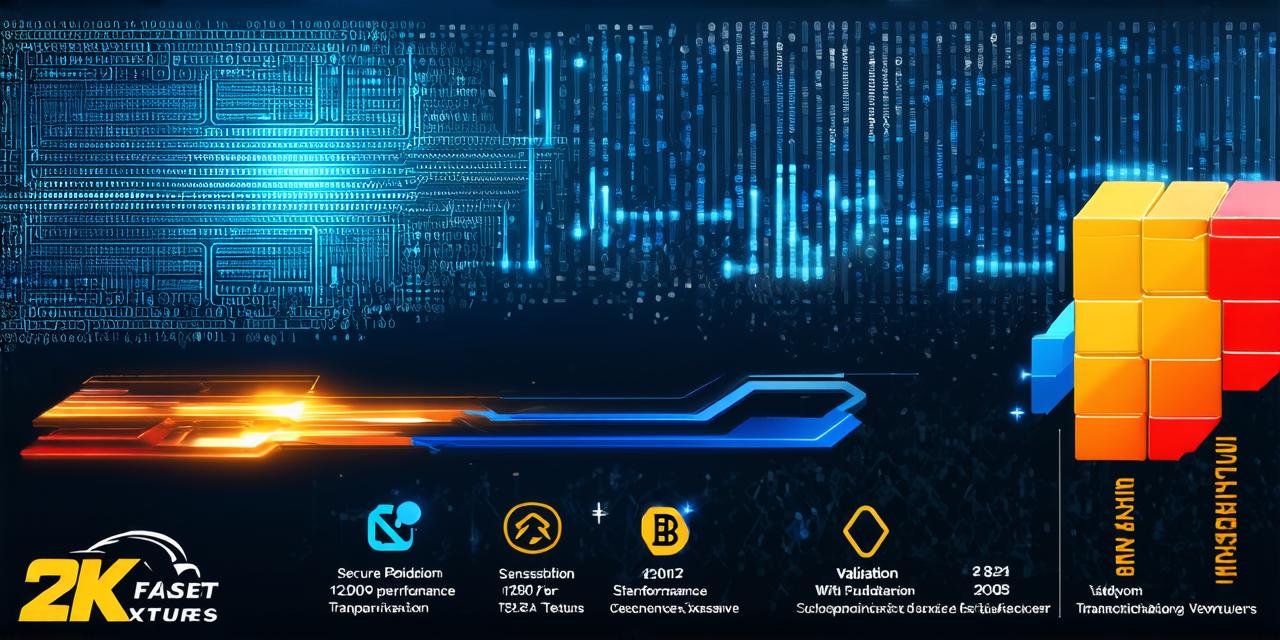What is the fastest blockchain network
Transaction Speed: The Key Factor
Transaction speed is a critical factor when choosing a blockchain network. It determines how quickly transactions are processed and confirmed, making it essential for applications that require near-instant settlements, such as online payments and trading platforms.
Bitcoin
Bitcoin is the first and most widely used cryptocurrency in the world. It has a transaction speed of around 7 transactions per second (TPS), which may seem slow compared to other blockchain networks. However, Bitcoin’s network infrastructure was not designed for high transaction volumes, and its consensus mechanism, Proof-of-Work (PoW), can be resource-intensive, leading to slower transaction speeds.
Ethereum
Ethereum is a popular platform for building decentralized applications (DApps) and smart contracts. It has a transaction speed of around 15 TPS, which is significantly faster than Bitcoin. Ethereum’s consensus mechanism, Proof-of-Stake (PoS), is more energy-efficient and can handle higher transaction volumes.
EOS
EOS is a blockchain platform that focuses on enabling fast and scalable DApps. It has a transaction speed of around 200 TPS, which makes it one of the fastest blockchain networks available. EOS uses Delegated Proof-of-Stake (DPoS) consensus mechanism, which is faster and more energy-efficient than PoW or PoS.
NEO
NEO is a smart contract platform that enables high-performance DApps. It has a transaction speed of around 100 TPS, making it faster than Bitcoin and Ethereum. NEO uses Byzantine Fault Tolerance (BFT) consensus mechanism, which is more efficient and scalable than PoW or PoS.
Cardano
Cardano is a blockchain platform that focuses on providing a secure and scalable infrastructure for DApps. It has a transaction speed of around 25 TPS, making it faster than Bitcoin and Ethereum. Cardano uses Ouroboros PoS consensus mechanism, which is more efficient and secure than PoW or PoS.
Scalability: The Key to Long-Term Success
While transaction speed is essential for applications that require near-instant settlements, scalability is crucial for long-term success. A blockchain network should be able to handle increasing amounts of data and users without compromising on performance or security.

EOS
As mentioned earlier, EOS has a transaction speed of around 200 TPS and uses DPoS consensus mechanism, making it one of the fastest blockchain networks available. However, EOS also has excellent scalability, allowing it to handle increasing amounts of data and users without compromising on performance or security.
Cardano
Cardano has a transaction speed of around 25 TPS and uses Ouroboros PoS consensus mechanism, making it faster than Bitcoin and Ethereum. However, Cardano also has excellent scalability, allowing it to handle increasing amounts of data and users without compromising on performance or security.
Cosmos
Cosmos is a blockchain network that enables interoperability between different blockchain networks. It has a transaction speed of around 20 TPS and uses Proof-of-Stake consensus mechanism, making it faster than Bitcoin and Ethereum. However, Cosmos also has excellent scalability, allowing it to handle increasing amounts of data and users without compromising on performance or security.
Polkadot
Polkadot is a blockchain network that enables interoperability between different blockchain networks. It has a transaction speed of around 15 TPS and uses Proof-of-Stake consensus mechanism, making it faster than Bitcoin and Ethereum. However, Polkadot also has excellent scalability, allowing it to handle increasing amounts of data and users without compromising on performance or security.
Efficiency: The Key to Cost-Effective Solutions
Efficiency is another critical factor when choosing a blockchain network. It determines how much computational power and resources are required to process transactions, making it essential for cost-effective solutions.
Note: While not a blockchain network in itself, Chainlink is a decentralized oracle network that provides real-time data feeds to smart contracts. It has excellent scalability, allowing it to handle increasing amounts of data and users without compromising on performance or security.



